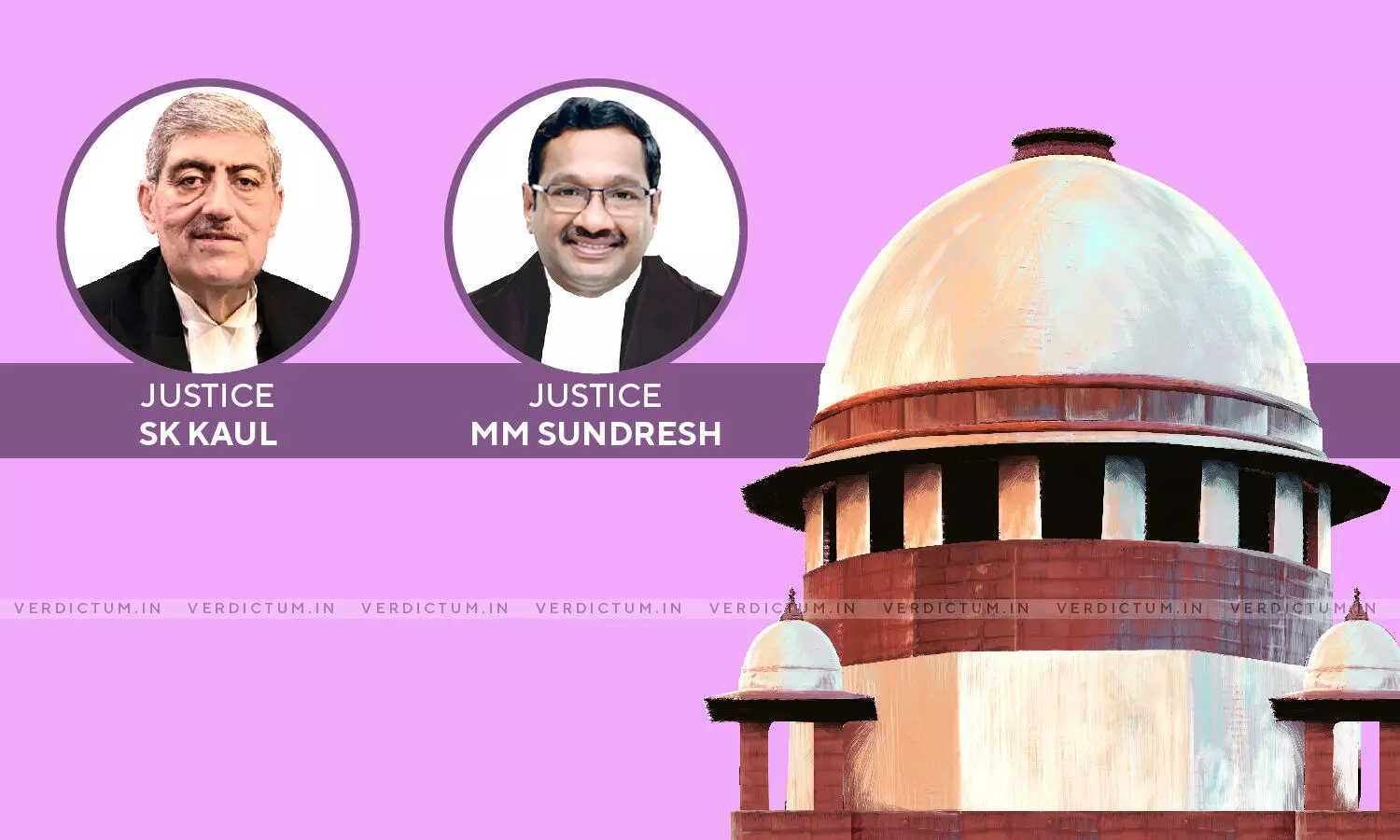
Accused Can Be Supplied With Copy Of Protected Witness's Statement With Redacted Identity U/s. 207 CrPC - SC
 |
|A two-judge bench of the Supreme Court comprising of Justice SK Kaul and Justice MM Sundresh while restoring the judgment of the Trial Court has observed that the accused can be given a copy of the protected witness's statement with his identity redacted under Section 207 CrPC.
The Court in this context further opined -
"Having said so, we also come to the order passed by the trial court on 11.09.2021 which has been cautiously worded. The order has not only permitted redaction of the address and particulars of the witnesses which could disclose their identities but has further observed as noted aforesaid that even other relevant paras in the statement which would disclose their occupation and identity could be redacted."
In this case, an FIR was registered on 11.01.2020 under Sections 18, 19, 20, 38 & 39 of the UAPA read with Sections 7/25 of the Arms Act, 1959 and Sections 3/4 of the Explosive Substance Act, 1908 against one Syed Naveed Mushtaq and others at P.S. Qazigund. The National Investigation Agency (for short 'NIA') took up the investigation into this FIR under Section 6(4) read with Section 8 of the NIA Act and the FIR was re-registered. The Appellant herein was arrested and the NIA filed the second supplementary chargesheet in the FIR before the Court of the third Additional Sessions Judge, Jammu (Special Judge NIA Act), and arrayed the Appellant as accused No.11 in the said supplementary chargesheet. On the same set of allegations and evidence as that of the NIA chargesheet, the Respondent filed another final report/chargesheet before the Special Judge (NIA Act), Srinagar where the Appellant was arraigned as the sole accused. The trial court allowed the application of the Appellant. The Jammu & Kashmir and Ladakh High Court also allowed the appeal. This was challenged before the Apex Court.
Counsel, Shadan Farasat appeared for the Appellant while Counsel, Taruna Ardhendumauli Prasad represented the Respondent before the Supreme Court.
The primary issue in this case was –
Whether in the case of certain witnesses being declared as protected witnesses in the exercise of powers under Section 173(6) of the Code of Criminal Procedure, 1973 read with Section 44 of the Unlawful Activities (Prevention) Act, 1967 by the trial court, could the defence seek recourse to the remedy under Section 207 and Section 161 of the Cr.P.C. for obtaining copies of redacted statements of these protected witnesses.
It was contended by the Appellant that the accused had a statutory right to get a copy of the witnesses' statements in order to confront the witness during the course of the trial in accordance with Sections 161 and 207 of the Cr.P.C. and relied upon the judgment of this Court in Mohd. Hussain v. State (GNCTD) to emphasize that the accused had a right under the said provisions to receive copies of witnesses' statements in order to mount an effective defense.
On the other hand, the Respondent resisted the appeal essentially on the ground that the power of review was not available with the trial court as per Atul Shukla v. State of M.P. It was urged that in view of the charges leveled against the Appellant, it was expedient in the public interest for certain facts to be excluded from disclosure as there was an imminent threat to the life and safety of witnesses and their families.
The Court observed that the provisions of Section 173(6) of the Cr.P.C. read with Section 44 of the UAPA and Section 17 of the NIA Act stood on a different plane with different legal implications as compared to Section 207 of the Cr.P.C. According to the Court, the first order was passed at the threshold and there was no notice to the accused. The Court opined that the objective of Section 44, UAPA, Section 17, NIA Act, and Section 173(6) was to safeguard witnesses. They were in the nature of statutory witness protection. It was held that on being satisfied that the disclosure of the address and name of the witness could endanger the family and the witness, such an order could be passed. They were also in the context of special provisions made for offences under special statutes.
The Court observed that – "the occasion for the Appellant/accused to come in and seek redacted statements under Section 207 of the Cr.P.C. arose when the trial was to commence and the Appellant was of the view that in order to plead an appropriate defence there should be full disclosure minus the redacted portion so that the testimonies of those witnesses could be utilised without disclosing their identities or their place of residence. This is not, in our view, an exercise of the power of review but the exercise of powers at two different stages of proceedings under two different provisions. The plea of the prosecution of this being a review power is, thus misplaced. There is no doubt that the power of review is not available with the trial court and the question was whether the exercise of the power by the trial court under the two separate provisions vide orders dated 01.06.2021 and 11.09.2021 can at all be said to be the power of review in the latter order. The answer to this is clearly in the negative."
Thus, the impugned judgment of the Jammu & Kashmir and Ladakh High Court was set aside and the impugned order of the Trial Court was restored.
Click here to read/download the Judgment